Today I am happy to announce that the Rogue Scholar science blog archive has joined the Fediverse, the federated social network that communicates using the ActivityPub protocol. I have launched a Mastodon instance at Rogue Scholar Social that accepts Science Blog bots as accounts, publishing summaries of blog posts.
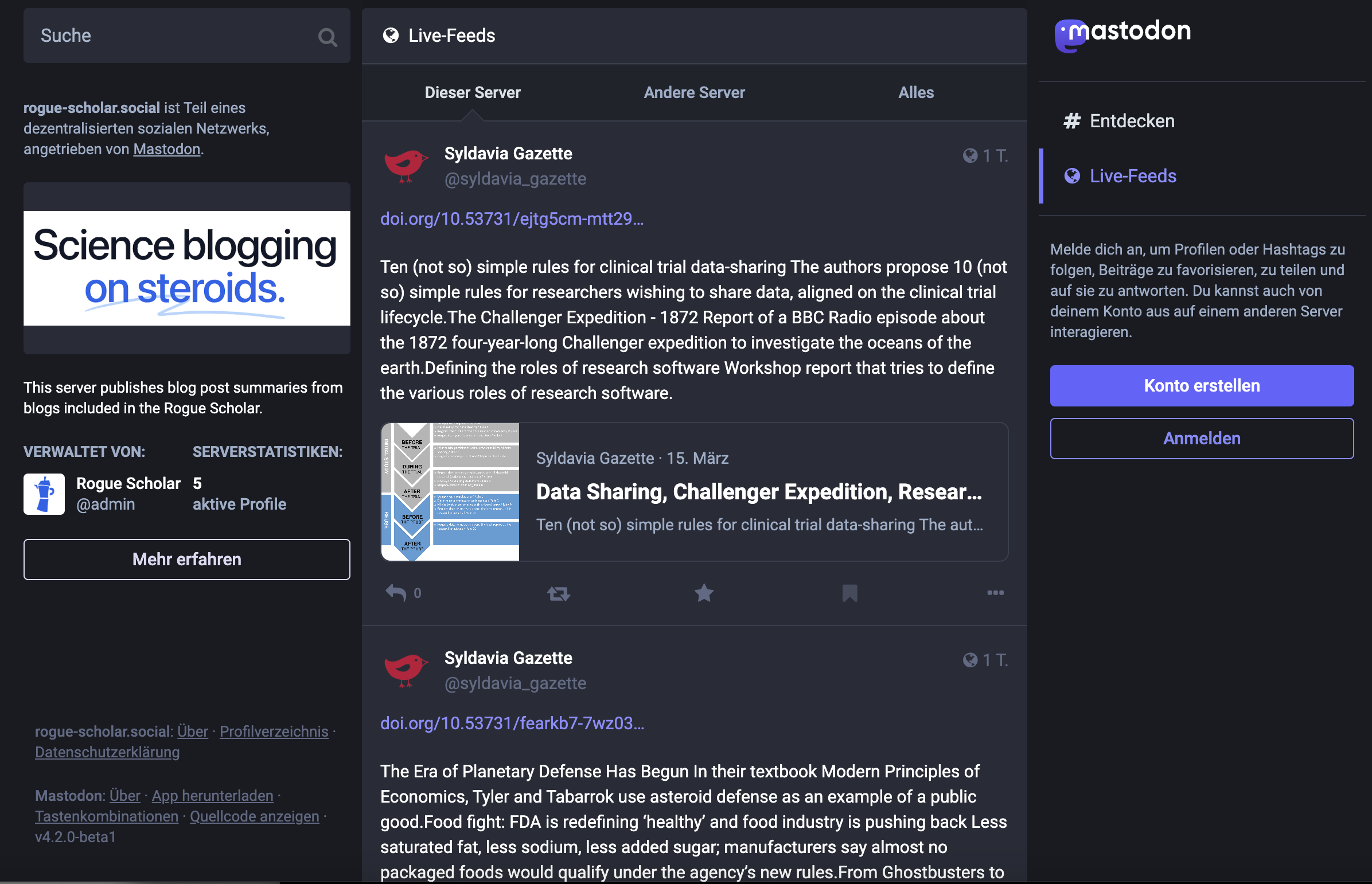
Science blogs are typically read by going to the blog homepage with a web browser or using an RSS reader. More recently, newsletters have also become popular. These three approaches (web, feed reader, and email) combine discovery and reading of content in different ways. The discovery part can be augmented by social media, and Twitter has played a central role in this for more than 10 years. Unfortunately, Twitter (as we knew it) no longer exists, and we have to use other social media channels to discover interesting scholarly content.
In the past nine months, Mastodon, has emerged as the most popular alternative to Twitter for scientists. It is fundamentally different from Twitter, and other popular social media providers. It is based on a federated architecture (using the ActivityPub protocol) and uses Open Source software (available on GitHub) so that everybody can install their own instance of Mastodon (or other software using the ActivityPub protocol). This flexibility and openness make using Mastodon harder to use but easier to customize to the needs of a science blog reader.
The Rogue Scholar Mastodon instance is different from most other Mastodon instances in that it is not open for new users to join. It doesn't have personal accounts, only bots for blogs that participate in the Rogue Scholar science blog archive. To create a Mastodon account for your blog, open your blog configuration in the Rogue Scholar dashboard (login via the sign in link on the Rogue Scholar homepage) and enter a unique name (only lowercase letters and underscore are allowed). Account creation and posting messages for new blog posts are not automated yet, but there is nothing else for blog authors to do.
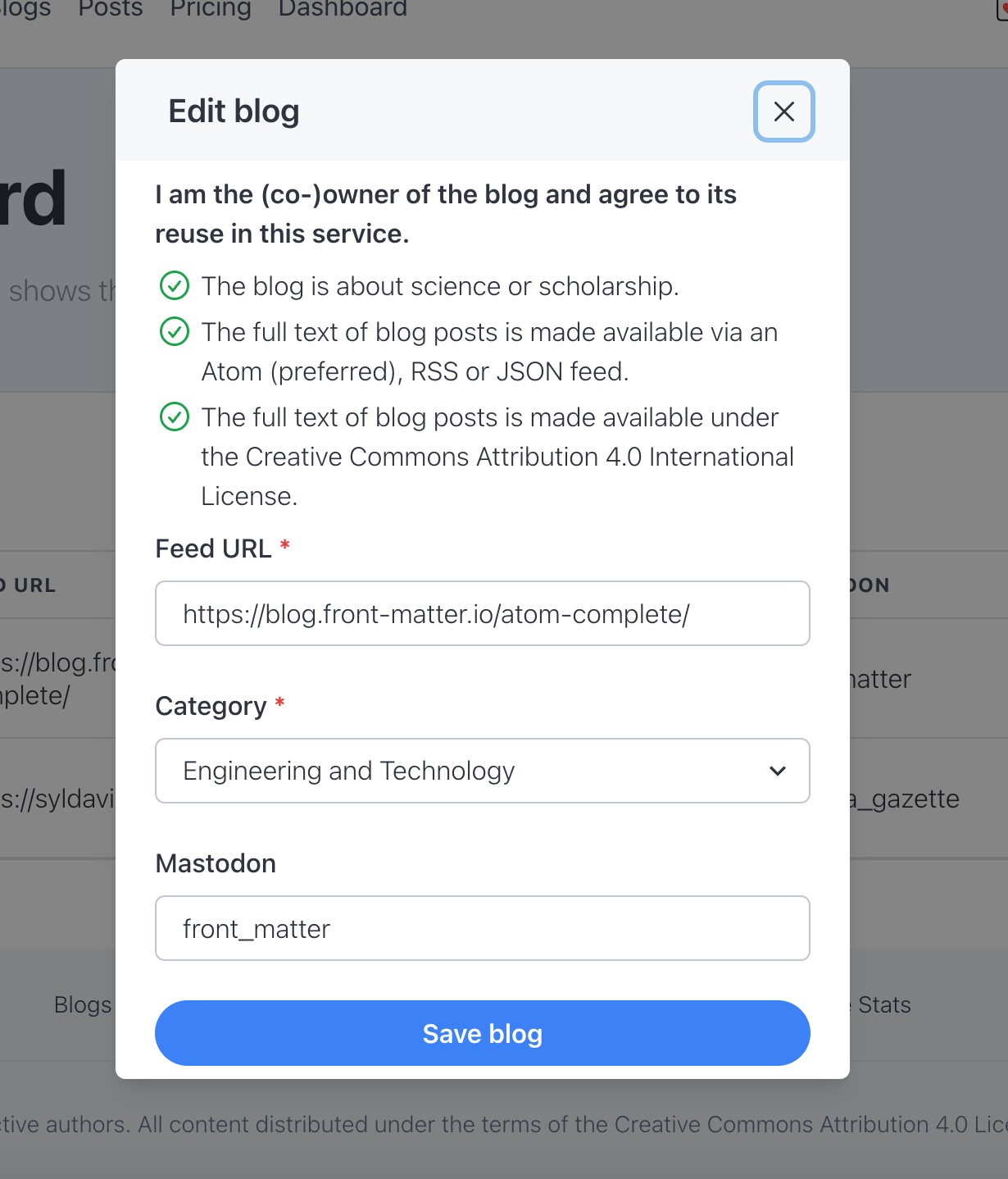
As a science blog reader, go to the Rogue Scholar Mastodon instance profiles directory and subscribe to one or more science blogs participating in the Rogue Scholar Mastodon service.
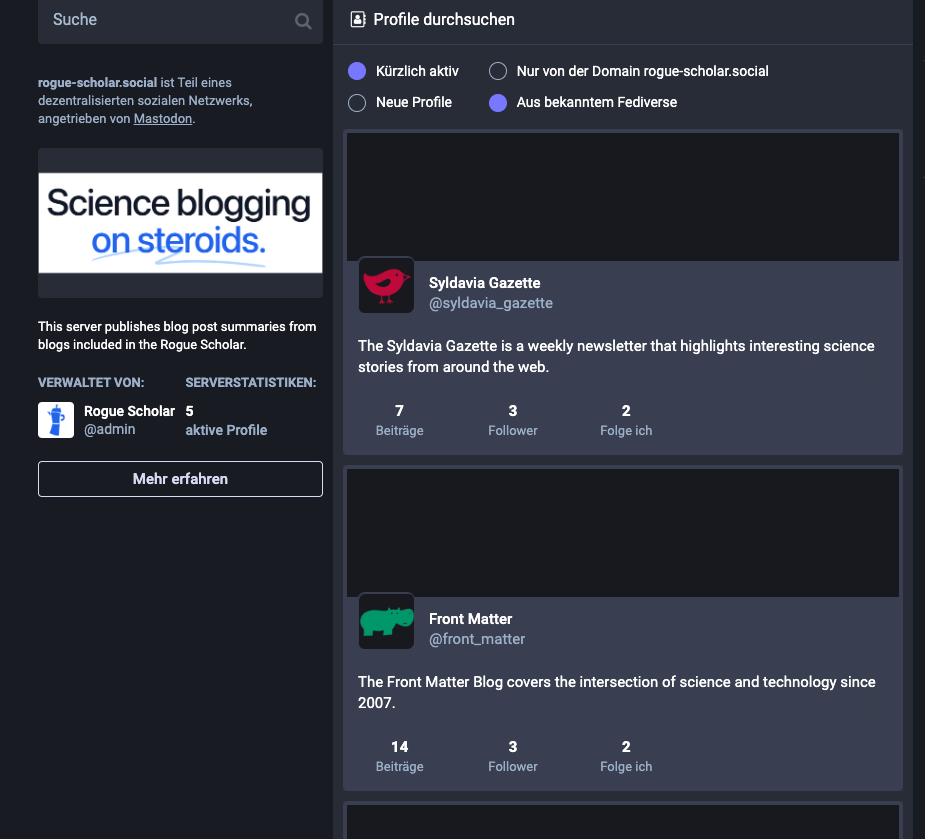
Depending on your Mastodon client (here I use Ivory for Mac) you see a summary of the latest blog post in your feed. Clicking on the link (the DOI) leads you to the full-text post, but you can also like, share or boost the blog post, or post a comment.
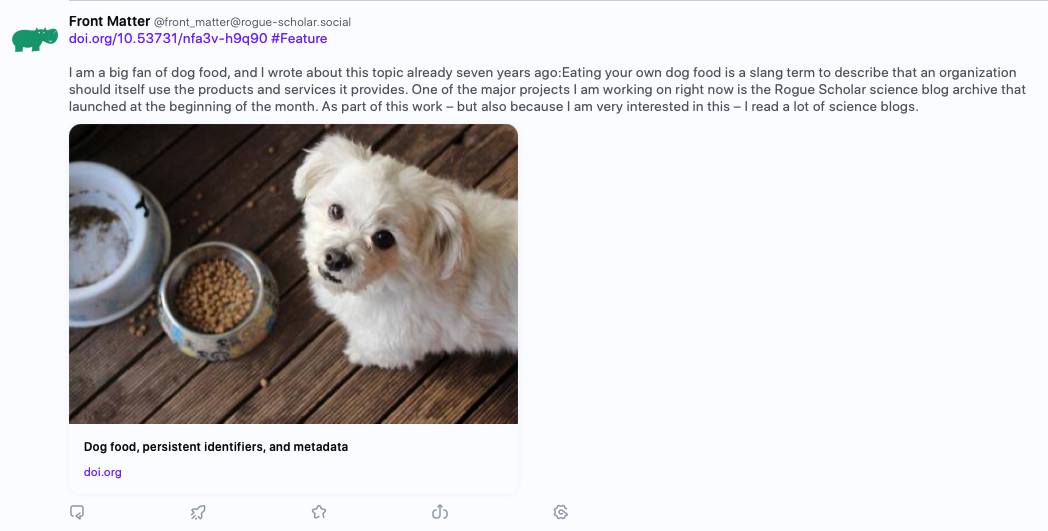
If you have problems configuring Mastodon for your blog in Rogue Scholar, or following a Rogue Scholar blog via Mastodon, send an email or ping me on Mastodon.
The next steps in the next few weeks are:
- Refine the Rogue Scholar / Mastodon integration, including automation
- Look into features currently missing but important for science blogs such as integration with full-text search and support for more metadata. The Rogue Scholar Mastodon instance is running the latest beta version of Mastodon (v4.2.0-beta1), which displays more information in the preview card (blog name, publication date, and beginning of description):
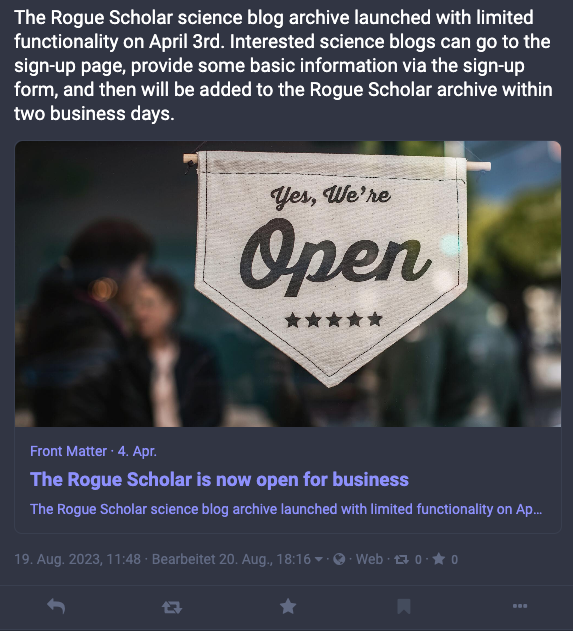
References
- Vidal Valero, M. (2023). Thousands of scientists are cutting back on Twitter, seeding angst and uncertainty. Nature, 620(7974), 482–484. https://doi.org/10.1038/d41586-023-02554-0


